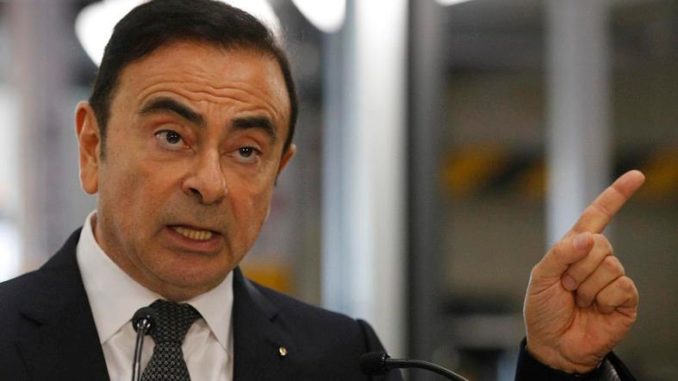
Former Renault-Nissan chairman Carlos Ghosn has beefed up his defense team ahead of his trial in Japan by hiring Junichiro Hironaka, a star lawyer with a strong track record for winning rare acquittals in a country where the conviction rate is 99 percent.
Another new attorney on his team, Hiroshi Kawatsu, is an expert on judicial reform who has studied and done research in the US. Ghosn, arrested on Nov. 19, and charged with falsifying financial reports and breach of trust, says he is innocent.
Some of prominent cases Hironaka has won are:
Ichiro Ozawa: An influential lawmaker known as the “shadow shogun” for his backroom dealings, Ozawa was charged with false financial reports on political funding, linked to a 2004 land deal. He was acquitted in 2012, while three aides got suspended sentences. Ozawa’s defense argued he was innocent as he had no knowledge of the deal.
Kazuyoshi Miura: The Japanese businessman was suspected of involvement in the shooting death of his wife in Los Angeles in 1981. Miura was shot in the leg while his wife was shot in the head. Miura’s 1994 conviction was overturned by two higher courts, including a 2003 Supreme Court ruling. Hironaka led the defense in both. Arrested in Saipan, Miura was extradited to the US in 2008 on conspiracy charges since murder charges would have amounted to double jeopardy. He was found dead in his jail cell while awaiting arraignment. The coroner ruled it a suicide.
Atsuko Muraki: A welfare ministry official, Muraki was arrested in 2009 on suspicion of falsely approving a group to qualify for mail discounts. She asserted her innocence, saying she knew nothing about such a group. She was acquitted in 2010. One of the first women to rise in Japan’s government bureaucratic ranks, she has written books criticizing the Japanese criminal system, drawing on her roughly five months of detention.
Takeshi Abe: The head of a government AIDS research team, in 1996 Abe was charged with professional negligence resulting in death, in a major scandal over the sale of HIV-tainted blood products in 1983-85 that caused 2,000 Japanese, mostly hemophiliacs, to contract the AIDS virus. The blood had not been heat-treated to kill the virus, a procedure that was used in the US but not approved for use in Japan until 1985. Abe denied wrongdoing, saying he didn’t know the products would lead to infection. He was acquitted in 2001 after a four year trial and died in 2004, while facing an appeal.
BY ALARABIYA NEWS
